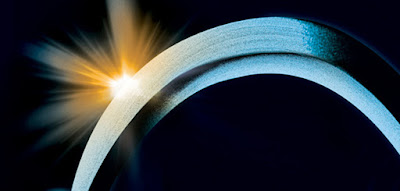Django Unchained Review
Over the course of an all but faultless career, Quentin Tarantino has dealt with a range of topics that are controversial to say the least. From his take on 1970's blaxplotation films in Jackie Brown, an horrific rape scene in Kill Bill, Nazi's in Inglorious Basterds and now pre-civil war slavery in Django Unchained, Tarantino has always pulled it off with an incredible lack if community reaction. Sure, parents associations complain about violence and Spike Lee complains about the overt use of the "N" word, but generally his films are labelled "controversial" before being widely accepted by audiences. It seems to be Tarantino's honesty that allows this to happen. Honesty and the completely in-your-face, over the top way that he approaches these topics. He makes them larger than life, puts a spotlight on the elephant in the room, demystifies it and takes away its power.
 Django Unchained is quintessentially Quentin. From start to finish there are solid blocks of dialogue that can only be written by such a masterful hand, purposefully written for each character and seemingly each actor. The dialogue flows freely and creates a believable, albeit cartoonish, German bounty hunter and his freed slave sidekick. Instead of needlessly writing dialogue and imposing it on the story, moments of silence are used to full effect, like a painter would use negative space.
Django Unchained is quintessentially Quentin. From start to finish there are solid blocks of dialogue that can only be written by such a masterful hand, purposefully written for each character and seemingly each actor. The dialogue flows freely and creates a believable, albeit cartoonish, German bounty hunter and his freed slave sidekick. Instead of needlessly writing dialogue and imposing it on the story, moments of silence are used to full effect, like a painter would use negative space.
Although a self professed history buff, Tarantino takes liberties with respect to certain elements of the films plot. A Google search of "Mandingo Fighting" will return articles from notable American historians who state that there are no records of slaves being used in gladiatorial blood sports despite events in Django Unchained. Google will also advise you that Mandingo is the name of an African American pornstar who has a penis not unlike a babies arm holding an apple... but I digress. Regardless of the accuracy of certain elements of the film, these liberties make for a caricature of an utterly revolting era in human history, lampooning slavers and slave owners and highlighting just how far humanity has come since the bad old days.
 Cinematographer Robert Richardson, Tarantino's go-to since Kill Bill vol 1, assisted in delivering Django's mash-up vibe by channelling Leone and Corbucci with quick zooms and the like before indulging in the glory of a slo-mo gunfight, complete with a hip-hop backing track. The soundtrack too is a mish mash of classic, spaghetti western inspired themes as well as original pieces from modern day pop idols Rick Ross, John Legend, Anthony Hamilton and Django himself, Jamie Foxx.
Cinematographer Robert Richardson, Tarantino's go-to since Kill Bill vol 1, assisted in delivering Django's mash-up vibe by channelling Leone and Corbucci with quick zooms and the like before indulging in the glory of a slo-mo gunfight, complete with a hip-hop backing track. The soundtrack too is a mish mash of classic, spaghetti western inspired themes as well as original pieces from modern day pop idols Rick Ross, John Legend, Anthony Hamilton and Django himself, Jamie Foxx.  Foxx seems to relish in a role that brings out all of the bad ass that he could muster but is eventually outshone by Leonardo DiCaprio, Mister Candie, and his puppeteer, long-time house slave, Stephen, hilariously played by Samuel L Jackson. DiCaprio turns on the crazy and delivers what is at times a truly frightening look into the psyche of a man who thinks nothing of owning people, treating them like playthings and breaking them when they bore him. A petulant child and a frightening one at that but even he was foreshadowed by the true star of the film, Dr King Schultz played by Christoph Waltz. Already an award winner for the role, he is now in the running for another Oscar, testament to how much of a scene stealer he truly is. Waltz and Tarantino are a match made in heaven with Tarantino's dialogue delivers in pitch perfect synchronicity to Waltz' interpretation of the Germanic hunter. A man who faces his own crisis upon the realisation that not unlike slavers, he too deals in the business of lives.
Foxx seems to relish in a role that brings out all of the bad ass that he could muster but is eventually outshone by Leonardo DiCaprio, Mister Candie, and his puppeteer, long-time house slave, Stephen, hilariously played by Samuel L Jackson. DiCaprio turns on the crazy and delivers what is at times a truly frightening look into the psyche of a man who thinks nothing of owning people, treating them like playthings and breaking them when they bore him. A petulant child and a frightening one at that but even he was foreshadowed by the true star of the film, Dr King Schultz played by Christoph Waltz. Already an award winner for the role, he is now in the running for another Oscar, testament to how much of a scene stealer he truly is. Waltz and Tarantino are a match made in heaven with Tarantino's dialogue delivers in pitch perfect synchronicity to Waltz' interpretation of the Germanic hunter. A man who faces his own crisis upon the realisation that not unlike slavers, he too deals in the business of lives.
Django Unchained is everything that you could expect from a Tarantino film, a genre masterpiece and tip of the hat to those who have come before. An incredibly visceral film and a buckshot to the senses, Django Unchained is incredible.
Django Unchained is released in Australian cinemas on January 24th.




